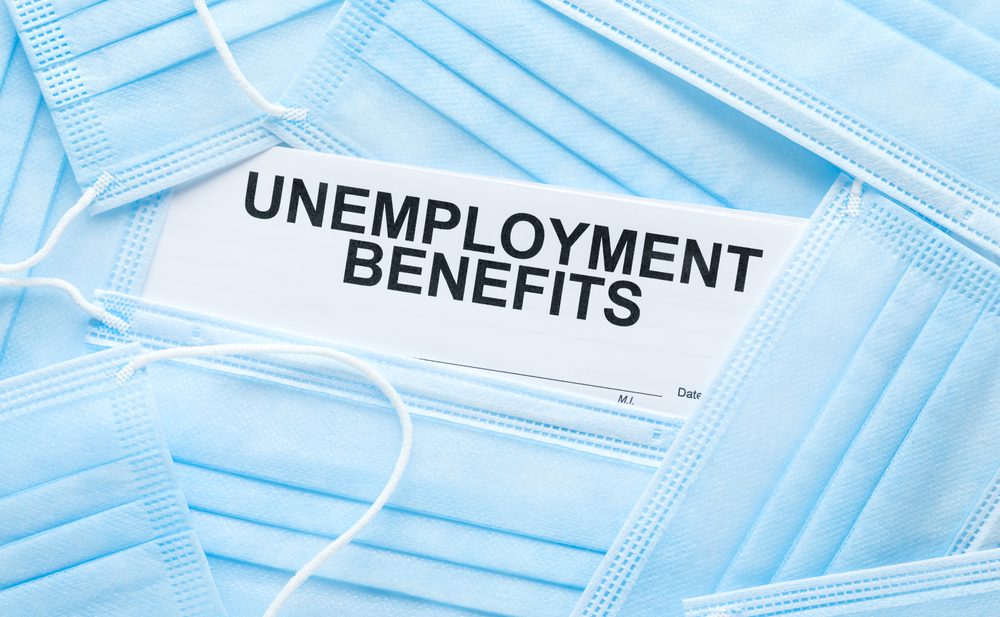What You Need to Know About Unemployment

Information for Our Unemployed Clients and Employers
The Covid-19 pandemic and resulting stay-at-home orders have led to the highest unemployment rate in the US since the Great Depression. Since March, millions of Americans whose careers have been disrupted by the pandemic have been newly claiming unemployment benefits.
Additionally, the CARES Act directed states to extend benefits to out-of-work independent contractors, employers, and others who would not have qualified for traditional unemployment insurance. This means that a large number of Americans are in receipt of these benefits for the first time.
On August 8 , 2020 an executive order was signed to raise unemployment benefit payments by $400 a week. However, most claimants will only receive an additional $300/week. This is because the states that are already paying at least $100 in state unemployment benefits will not have to contribute the additional $100, which most are.
However, that’s not the only complication to bear in mind when it comes to unemployment. With millions of Americans now receiving unemployment (and large sums of money involved), there are three important facts that should be understood both by those receiving unemployment, and by their former, current, and potentially future employers, especially those with PPP loans.
- Income Tax: Unemployment benefits are subject to federal income taxes, as well as state income taxes in most states. This could result in many people facing an unexpectedly hefty tax bill at the end of the year. The prudent solution—at least for those not desperate for every dollar they can get in the short term—is to request “voluntary withholding.” Effectively, you can ask the government to hold back the amount they would eventually require back in tax, so you don’t have to worry about it later. This can be done simply by completing and submitting Form W-4V (PDF).
- Earned Income Credit (EIC): The EIC is a benefit that low-income taxpayers receive when filing their taxes. This can be as large as $6,660 depending on your filing status and how many children you have. The idea behind the EIC is to incentivize people both to stay in work and to earn more, rather than depending on government assistance. It helps avoid the so-called ‘welfare trap’ whereby people find they take home less despite earning more, because they lose welfare benefits. Instead, the more income you make, the larger the credit is, until you start making enough that the credit phases out because you move out of the low-income threshold altogether.Obviously, unemployment is not technically “earned” income. Many recipients will have worked or been self-employed in the same tax year, so they don’t necessarily lose their EIC because they have also claimed unemployment. However, EIC is only available if their adjusted gross income (AGI) is less than the applicable maximum for the tax year. It is possible that unemployment benefits could nudge the AGI over the top. Voluntary withholding can make all the difference here, which makes it another reason to use that option.
- Medicare and Social Security: A similar issue arises with social security and Medicare payments, which are deducted from paychecks but not from unemployment. As such, recipients may find their social security and Medicare benefits are affected, just like EIC.
CJBS can assist in all of these scenarios by ensuring the necessary paperwork is in place to apply for withholding and to deal with other complications.
This information is also relevant to our business clients, especially those that received a PPP loan. Obviously, you will want to retain or rehire as many employees as possible. Indeed, it is a requirement to maintain the fulltime equivalent headcount necessary to secure PPP loan forgiveness, without the need for additional documents or reporting. If a former employee believes that collecting unemployment is a better alternative to resuming their job, a candid discussion about how it could affect their federal and state income tax, EIC, social security, and Medicare benefits is in order.
As ever, we are here to lend a helping hand to help explain and clarify what all of the above means for you and/or your business.
Stay safe and Healthy.
With gratitude, The CJBS Team

